Last updated: September 2025
Whether you’re renting a condo in Las Vegas, a flat in London, or an apartment in Toronto, one thing is constant: landlords want proof you can pay. In Nevada, many property managers will ask for recent pay stubs. In the UK and Canada, they may request several months of payslips or an official Notice of Assessment.
Confusion often stems from different rules across jurisdictions and strict limits on altering income documents. As editors and compliance professionals, we only format and organize genuine documents you already have — we never fabricate numbers, dates, or parties. Below is a clear, practical guide to what the law says, what landlords typically request, and how to meet those requests without risking fraud.
We also explain how FinancialDocsProvider.com can help you assemble a clean proof‑of‑income package for rentals, auto loans, or SBA financing. Our compliance‑first approach preserves the substance of your records while improving readability.
Related Entities & Terms
- Pay stub / payslip / wage slip – documentation of earnings and deductions
- W‑2 (US), 1099 (US), T4 (Canada), Notice of Assessment (NOA) (Canada), P60 / P45 (UK)
- Bank statements, employment contracts, proof of income letters
- CFPB, FTC, IRS – US regulators overseeing consumer protection and tax compliance
- FCA, GOV.UK, HMRC – UK regulators for financial conduct, housing benefit, and taxation
- FCAC, CRA – Canadian regulators and revenue agency
- Tenant screening report and Fair Credit Reporting Act (FCRA)
- Silver State Fair Housing Council – Nevada nonprofit enforcing fair housing rules
- Proof of income editing (formatting, redaction) and bank statement formatting
What are the legal basics of pay stubs for rentals?
Landlords need evidence that you can afford rent, but the law rarely mandates specific documents. In Nevada, there is no statute that requires pay stubs during screening. In the UK and Canada, social‑housing programs may set document rules, while private landlords define their own criteria within anti‑discrimination laws.
Understanding these guardrails helps you provide the right documents and avoid unfair treatment. It also clarifies what legitimate edits look like and what crosses the line into fraud.
Nevada landlord‑tenant screening laws
Nevada law regulates things like deposits and disclosures but imposes few rules on the application process itself. Landlords may charge application fees and request tenant screening reports, employment history, or credit checks. They are not required to accept a particular form of proof of income. The overarching requirement is compliance with federal and state fair housing laws.
Screening requirements must be applied consistently. If a landlord denies your application based on information in a tenant screening report, the Fair Credit Reporting Act (FCRA) requires an adverse action notice. That notice must include the screening company’s contact details so you can request a copy and dispute errors. You also have a right to know what information influenced the decision.
Typical document requests in Nevada
Even though pay stubs aren’t legally required, most Nevada property managers ask for them. Prospective tenants usually submit recent pay stubs along with references and credit reports. If you’re self‑employed, landlords commonly accept bank statements or tax returns in place of pay stubs.
UK proof‑of‑income rules
In the UK, private landlords or letting agents typically request three to six months of payslips. For Housing Benefit or Universal Credit claims, government guidance lists the exact documents required, such as a set number of recent payslips and recent bank statements. Private landlords often use these lists as benchmarks for their own checks.
While the UK’s Equality Act 2010 does not list “source of income” as a protected characteristic, blanket “No DSS” policies have been found unlawful where they amount to indirect discrimination. In other jurisdictions, such as New York City, “source of income” is explicitly protected. Always check local rules for the property you’re applying to.
Canadian proof‑of‑income guidelines
Canada does not have one nationwide standard for rental applications. Private landlords often ask for two or more recent pay stubs or an employment letter confirming salary. Government‑subsidized housing programs can require additional documentation, like consecutive pay stubs that show your name, your employer, and covered pay periods.
The Canada Revenue Agency also offers an official proof of income statement you can print from your online account. Many self‑employed renters use this statement or a Notice of Assessment as a pay‑stub alternative when applying for housing, loans, or benefits.
Which edits are allowed when formatting pay stubs?
Editing a pay stub is not inherently illegal. When done for legitimate reasons — such as protecting sensitive information or improving legibility — it can reduce delays and questions. The key is that edits must not change the underlying financial facts.
Our compliance‑first service focuses strictly on formatting, redaction, and organization. We preserve original numbers, dates, and parties in every file we touch.
Legitimate formatting and redaction
Legitimate edits include:
- Redacting personal identifiers – mask bank account or National Insurance numbers to reduce identity‑theft risk. Redactions should be clear and must not obscure earnings.
- Improving readability – convert images to PDF, rotate pages, and adjust contrast so text is easy to review.
- Consolidating pages – merge multiple pay stubs into one PDF or package W‑2, 1099, or T4 slips together for a clean submission.
- Removing blank pages or advertising – crop or exclude extraneous content so reviewers can focus on income details.
- Adding footnotes or annotations – clarify year‑to‑date totals, pay periods, or currency conversions for international submissions.
- Allowed edits: Redaction of account numbers, highlighting key fields, converting files to PDF, fixing orientation, and consolidating pages.
- Illegal alterations: Changing pay amounts, hours worked, dates, or employer/employee details, or generating fake pay stubs. These are fraudulent.
To verify authenticity, compare pay stubs with direct deposits on bank statements and with your employer’s payroll records. If you need help ensuring clarity and consistency, our proof of income editing service provides compliant formatting.
What pay stub edits are illegal?
Falsifying a pay stub crosses the line into fraud. That includes altering numbers, changing dates, or creating fabricated documents. Using fake pay stubs to secure housing, loans, or other services can lead to penalties, denial of your application, and potential criminal charges.
Consumer‑reporting laws, including the FCRA in the United States, emphasize accuracy and fairness. They give you rights when reports are wrong, but they do not shield deliberate misrepresentation.
Misrepresenting income and employment
Changing gross or net pay, adding overtime that wasn’t earned, or inserting bonuses you didn’t receive is misrepresentation. Landlords and underwriters often cross‑check pay stubs against bank statements, W‑2 or T4 slips, and employer verification letters. Mismatches are easy to spot and can derail applications.
Altering dates or pay periods
Editing pay dates to appear more current or to hide employment gaps is also unlawful. Many housing providers request consecutive pay stubs for a set period. Altering dates to meet that requirement undermines document integrity and may be treated as fraud.
Manufacturing documents
Creating a pay stub from scratch or buying a generic “template” to fill with guessed numbers is document forgery. Our service never fabricates pay stubs or bank statements and will not engage with vendors offering to “trick” landlords.
If a denial stems from inaccurate information in a tenant screening report, the FCRA entitles you to an adverse action notice and a copy of the report so you can dispute errors. That protection does not apply to intentional falsification. Always use genuine records and seek help only with formatting and organization.
When do you need professional document formatting?
Formatting looks simple until it delays an approval. Small issues—like low‑resolution scans, inconsistent dates, or missing pages—can trigger extra scrutiny. Professionally formatted packets reduce questions and make your income story easy to follow.
Whether you’re salaried, self‑employed, or juggling multiple income streams, the situations below show how expert formatting saves time.
Renters in Nevada and beyond
Imagine you’re applying for an apartment in Reno. The property manager requests two months of pay stubs, a W‑2, and a bank statement showing recent rent payments. You have a photo of a crumpled pay stub, a W‑2 PDF, and a screenshot of transactions.
The pay‑stub photo is hard to read, and the screenshot raises manipulation concerns. Our editors extract the relevant pages from the payroll PDF, combine them into a clean document, and redact sensitive numbers. We ensure the W‑2 and bank statement align with your pay stubs. The result builds confidence and speeds review.
Self‑employed applicants and freelancers
Self‑employed renters often lack pay stubs and rely on invoices, bank statements, and tax records. A Toronto applicant seeking rent‑geared‑to‑income housing may need consecutive statements and an income letter from a client or accountant. They might also submit a CRA Notice of Assessment or proof of income statement.
We compile these into a cohesive packet, highlight year‑to‑date totals, and convert scans into searchable PDFs. For UK freelancers, we collate invoices and statements alongside HMRC tax documentation, labeled and ordered for quick review.
Loan and SBA applicants
Lenders often request more than pay stubs. You may be asked for recent tax returns, a profit‑and‑loss statement, and a balance sheet. In the US, 1099s, W‑2s, and bank statements are standard. In the UK, SA302s appear frequently; in Canada, T1 Generals are common.
Our team organizes each document, applies consistent labels, and ensures totals reconcile across the file set. Clear presentation reduces back‑and‑forth with underwriters.
Side‑income or multiple jobs
Many tenants supplement primary employment with gig work. A Nevada casino employee might also drive for a ride‑share platform. Gig platforms rarely issue traditional pay stubs, so you may need statements from several sources.
We merge those statements into one document, summarize gross earnings, and cross‑reference them with deposits. Organized documentation signals reliability.
International moves
Moving between the UK, Canada, and the US introduces currency differences and unfamiliar tax forms. A UK payslip may include National Insurance contributions and use GBP, while a Nevada landlord expects USD references. Canadians moving to the US may present CRA Notices of Assessment and T4 slips alongside US pay stubs.
We annotate exchange rates, explain terminology, and align international documents with local expectations to support a fair assessment.
How do we work with clients?
Our process is fast, secure, and compliance‑first. We never ask for your payroll or banking logins. You upload existing documents through our encrypted portal, and we take it from there.
Here’s how it works from start to finish.
Step 1: Intake and assessment
We start by clarifying your application requirements and jurisdictions. For Nevada renters, that might include your payroll‑portal PDF, W‑2, and recent bank statements. Self‑employed clients may provide invoices, 1099s, T4s, or NOAs.
Step 2: Reconciliation and verification
We cross‑check pay stubs against deposits, tax forms, and other records to ensure consistency. If anything is missing or unclear, we let you know so you can supply the right page or a clearer copy. This prevents rejections caused by incomplete packets.
Step 3: Formatting and organization
Once we have a complete set of documents, we format them. This may include:
- Converting images to PDF and fixing page orientation.
- Redacting sensitive personal data while leaving financial details intact.
- Combining multiple pages into a single, clearly labeled PDF with bookmarks.
- Adding notes that clarify currency conversions or pay periods where helpful.
We never change numbers, names, or dates. If a document is illegible, we may ask you to rescan it or to provide an official statement from your payroll provider.
Step 4: Delivery and follow‑up
We deliver your formatted packet via secure link in the agreed timeframe — often within 24 hours for standard packages. If your landlord or lender requests anything additional, return with the new documents and we’ll format and integrate them.
Our pricing is transparent. Learn more about our mission and compliance principles on the about us page. We are not legal advisors; consult a qualified attorney or housing authority for legal guidance.
What should be on your compliance checklist?
A thorough, accurate packet speeds approvals and protects you from misrepresentation claims. Use this checklist to confirm your proof‑of‑income documents are complete and consistent before you submit.
- Gather consecutive pay stubs or alternatives. Aim for at least eight weeks of consecutive pay stubs where possible. If you don’t receive pay stubs, obtain an employer letter including hire date, salary, hours, and overtime, if applicable. Self‑employed? Include your latest Notice of Assessment, invoices, and bank statements.
- Include a bank statement showing deposits. Cross‑reference each deposit with the amounts on your pay stubs. For UK benefit claims, include recent statements for the requested period. For Canadian RGI applications, include the statements specified by the program and ensure account names and numbers are visible.
- Add your tax forms. Provide W‑2s (US), 1099s (US freelancers), T4s (Canada), or P60/P45 (UK) as applicable. If needed, obtain a proof of income statement through the CRA’s online service.
- Prepare employment verification. Include a signed employment letter or contract stating your position, salary, and length of employment. This is essential if you lack traditional pay stubs.
- Check for consistency. Ensure names, addresses, and dates match across documents. Landlords and underwriters verify this data; inconsistencies slow reviews and may raise fraud concerns.
- Redact sensitive information. Mask account numbers and Social Security or National Insurance numbers. Use clear black or white boxes and avoid obscuring financial details.
- Organize your documents. Label files clearly (e.g., “PayStub_2025‑08‑15.pdf”), combine pages into a single PDF, and keep a chronological order. A neat packet signals professionalism.
- Review legal rights. Know your FCRA protections in the US, including the right to an adverse action notice if a denial is based on a screening report. In the UK and Canada, check local human rights or tenant‑protection rules, including policies on benefits‑related discrimination.
Completing this checklist before you apply reduces questions and demonstrates that you are a reliable, well‑prepared applicant.
What red flags cause rental application rejections?
Even careful applicants can trigger red flags. Understanding common triggers helps you avoid them and present a clean, credible file the first time.
- Inconsistent numbers. If net pay on your pay stub doesn’t match bank deposits, reviewers will suspect manipulation.
- Mismatched fonts or formatting. Inconsistent fonts, spacing, or alignment within a single pay stub are classic forgery signs. Authentic payroll records use a consistent layout.
- Rounded figures. Perfectly round numbers (for example, a $500 net pay) look artificial. Real payroll calculations include cents and varied deductions.
- Missing employer details. Pay stubs should list the employer’s name and contact details. Missing information raises doubts about authenticity.
- Altered date stamps. Overwritten or misaligned pay periods and issue dates are flagged by software and human reviewers.
- Discrepancies between documents. If a W‑2 shows a different employer than the pay stub, or the employment letter contradicts the pay amount, expect questions.
- Falsified employment letters. Letters without letterhead, contact details, or a recent signature are often dismissed. Include hire date, gross pay, typical hours, and a signature with date.
- Omitting relevant context. Failing to explain employment gaps, variable income, or multiple jobs can appear evasive. A brief, honest note builds trust.
Avoid these pitfalls and use professional formatting to improve your chances of approval.
Where can you find trustworthy resources?
Rental requirements vary by jurisdiction and program. The sources below offer authoritative guidance on tenant screening, benefit documentation, and official proofs of income. Review them before you submit your packet.
- Consumer Financial Protection Bureau: Review your rental background check – explains tenant screening reports, FCRA rights, and how to dispute errors.
- GOV.UK: Supporting your Housing Benefit claim – lists required documents, including payslips and bank statements.
- CRA: Proof of income statement – shows how to obtain an official statement and when you might need it.
- Nolo: Overview of landlord‑tenant laws in Nevada – summarizes Nevada application and screening rules and fair housing obligations.
- Silver State Fair Housing Council – education and enforcement resources on fair housing in Nevada.
Explore related posts on our site:
- Signs of fake pay stubs – spot red flags like rounded numbers and mismatched fonts.
- Bank statements vs. pay stubs: Which proves your income better? – a deep dive on proof‑of‑income options.
- Paystub proof of income: real customer stories – how renters and borrowers in the US, UK, and Canada used our services.
If you need editing or formatting assistance, visit our financial document services page for details and pricing. Questions about our process or compliance philosophy? Read more about us or contact our team.
FAQs
Below are concise answers to common questions about pay stubs and rental approvals. Each response reflects a compliance‑first approach and emphasizes what is legal, practical, and effective.
Use these as a quick reference before you submit your application.
Do Nevada landlords legally require pay stubs?
No. Nevada law does not prescribe specific documents for tenant screening. Landlords often request pay stubs, but the law focuses on fair housing and anti‑discrimination. They must apply requirements consistently and provide an adverse action notice if they deny your application based on a screening report.
How many payslips do UK landlords need?
Private landlords commonly ask for three to six months of payslips. For Housing Benefit claims, the UK government typically requires a specific number of recent payslips plus recent bank statements to support your claim.
What alternatives exist if I don’t have pay stubs?
In Canada’s RGI housing, you can provide an employer letter stating salary, hours, and hire date. Self‑employed individuals can use a CRA Notice of Assessment or a proof of income statement. US applicants may submit 1099s, W‑2s, and bank statements. Gig workers should compile platform statements and deposit records.
Is it legal to edit my pay stubs?
Yes, if edits preserve the original financial information. You may redact account numbers, adjust brightness, or combine pages, but you cannot alter numbers, dates, or pay periods. Falsifying pay stubs is fraud and could lead to penalties.
How quickly can FinancialDocsProvider.com format my documents?
We typically deliver formatted document packets within 24 hours of receiving all required files. Turnaround may vary by complexity, but speed, security, and compliance remain our priorities.
Need accurate, reliable financial documents fast? Contact FinancialDocsProvider.com now.
Author: Jane Doe is a compliance‑focused financial editor with over 10 years of experience helping renters and business owners prepare clear, accurate financial documents. Learn more about Jane and the team on our About us page.

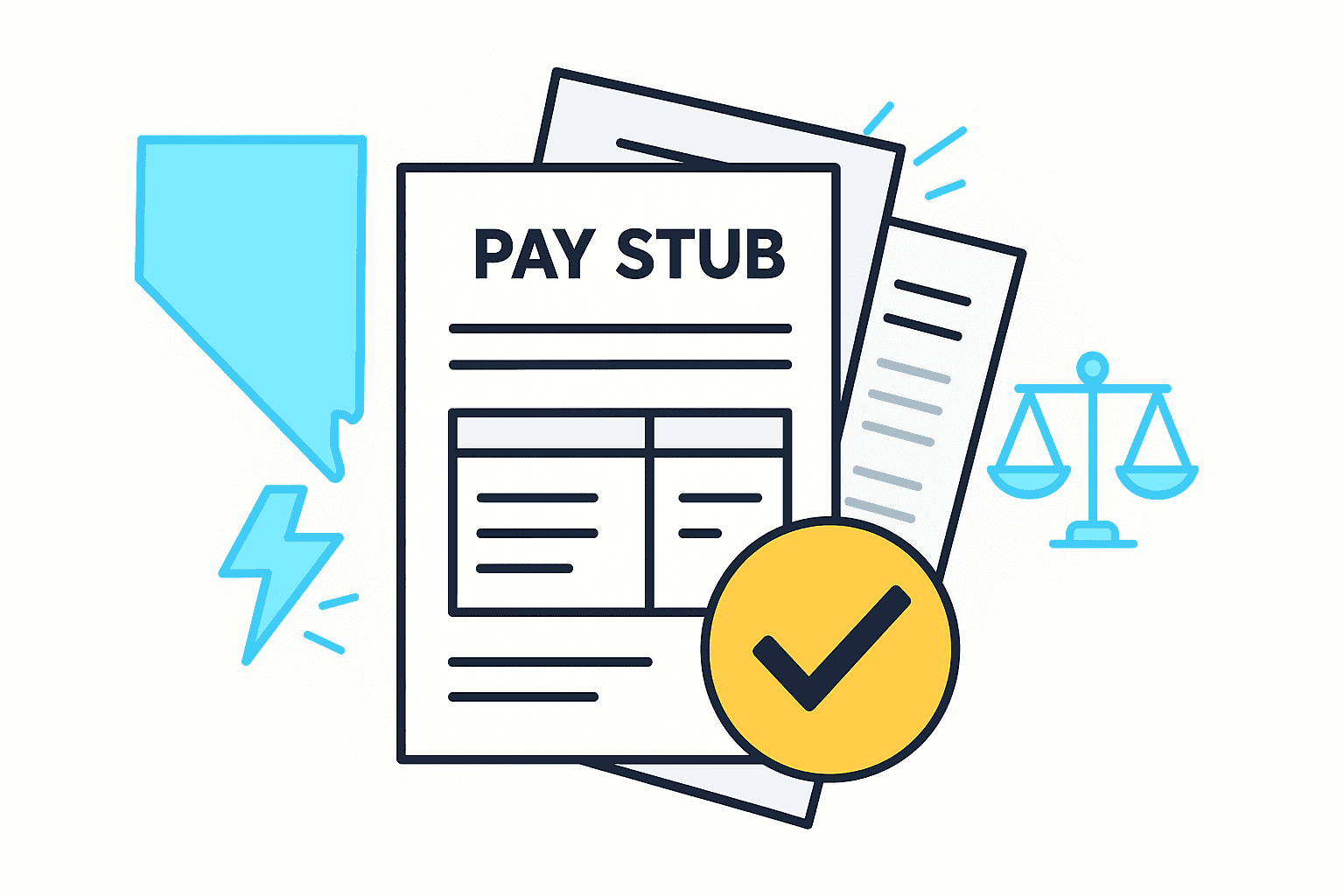
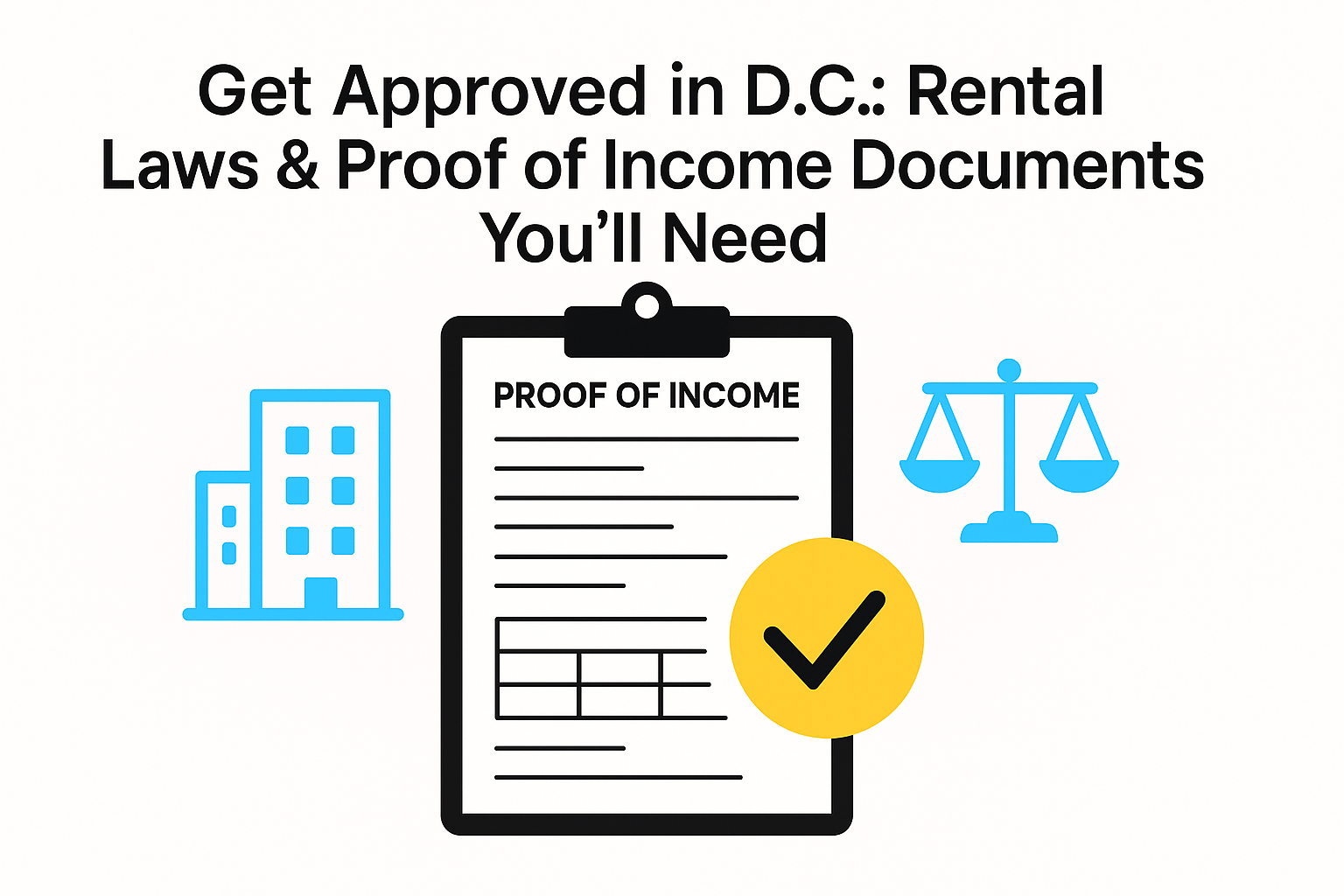

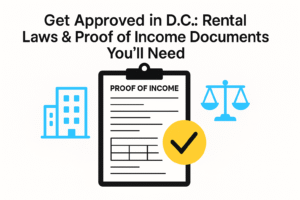
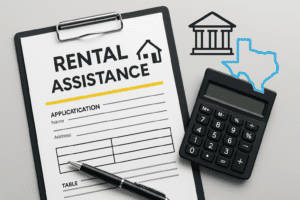
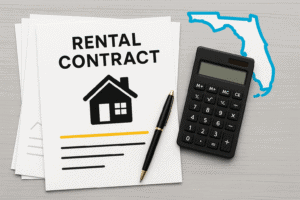
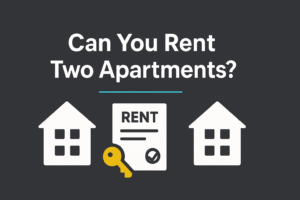

Add comment